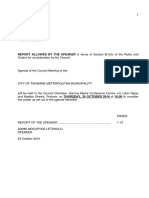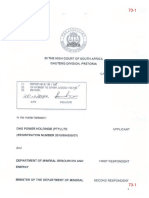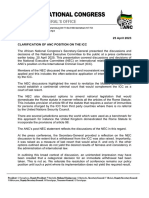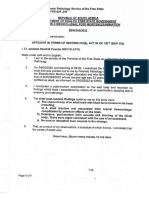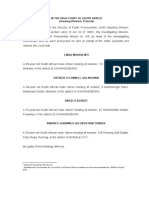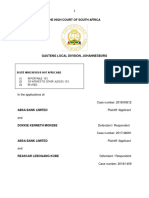0% found this document useful (0 votes)
209K views3 pages602
Standard Bank seeks a money judgment and execution against the Vavis' home due to their mortgage arrears of over R85,000. Despite the Vavis' initial arrears, they have been consistently paying their bond for the last 18 months and have reduced their debt significantly. The court finds that Standard Bank has not justified why executing against the Vavis' home is a proportionate response to recover the arrears.
Uploaded by
Krash KingCopyright
© © All Rights Reserved
We take content rights seriously. If you suspect this is your content, claim it here.
Available Formats
Download as PDF, TXT or read online on Scribd
0% found this document useful (0 votes)
209K views3 pages602
Standard Bank seeks a money judgment and execution against the Vavis' home due to their mortgage arrears of over R85,000. Despite the Vavis' initial arrears, they have been consistently paying their bond for the last 18 months and have reduced their debt significantly. The court finds that Standard Bank has not justified why executing against the Vavis' home is a proportionate response to recover the arrears.
Uploaded by
Krash KingCopyright
© © All Rights Reserved
We take content rights seriously. If you suspect this is your content, claim it here.
Available Formats
Download as PDF, TXT or read online on Scribd
/ 3


























